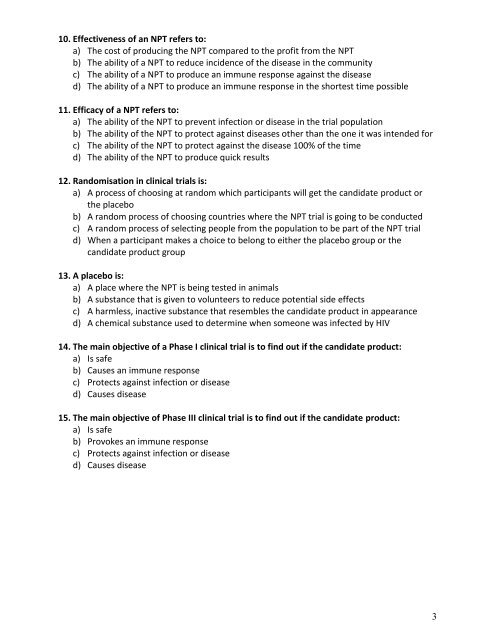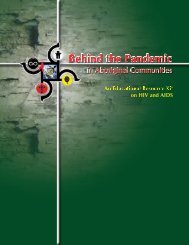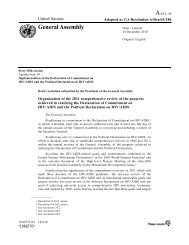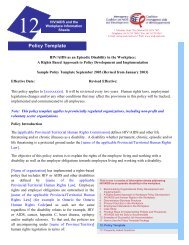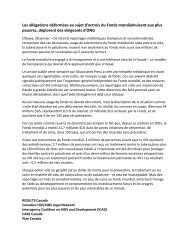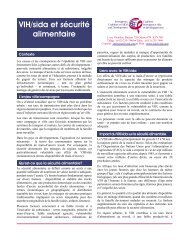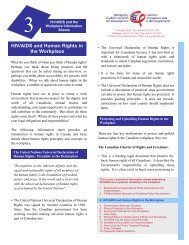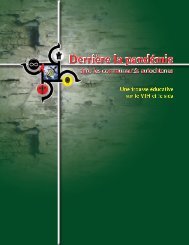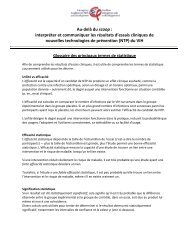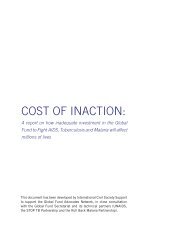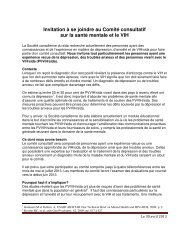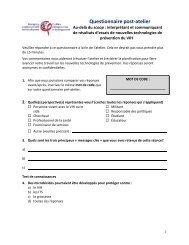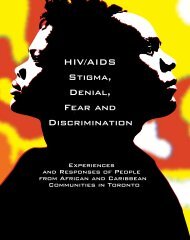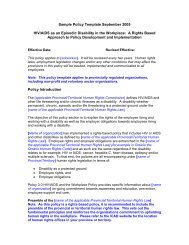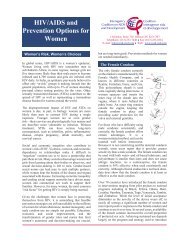Post-Workshop Evaluation Form
Post-Workshop Evaluation Form
Post-Workshop Evaluation Form
Create successful ePaper yourself
Turn your PDF publications into a flip-book with our unique Google optimized e-Paper software.
10. Effectiveness of an NPT refers to:<br />
a) The cost of producing the NPT compared to the profit from the NPT<br />
b) The ability of a NPT to reduce incidence of the disease in the community<br />
c) The ability of a NPT to produce an immune response against the disease<br />
d) The ability of a NPT to produce an immune response in the shortest time possible<br />
11. Efficacy of a NPT refers to:<br />
a) The ability of the NPT to prevent infection or disease in the trial population<br />
b) The ability of the NPT to protect against diseases other than the one it was intended for<br />
c) The ability of the NPT to protect against the disease 100% of the time<br />
d) The ability of the NPT to produce quick results<br />
12. Randomisation in clinical trials is:<br />
a) A process of choosing at random which participants will get the candidate product or<br />
the placebo<br />
b) A random process of choosing countries where the NPT trial is going to be conducted<br />
c) A random process of selecting people from the population to be part of the NPT trial<br />
d) When a participant makes a choice to belong to either the placebo group or the<br />
candidate product group<br />
13. A placebo is:<br />
a) A place where the NPT is being tested in animals<br />
b) A substance that is given to volunteers to reduce potential side effects<br />
c) A harmless, inactive substance that resembles the candidate product in appearance<br />
d) A chemical substance used to determine when someone was infected by HIV<br />
14. The main objective of a Phase I clinical trial is to find out if the candidate product:<br />
a) Is safe<br />
b) Causes an immune response<br />
c) Protects against infection or disease<br />
d) Causes disease<br />
15. The main objective of Phase III clinical trial is to find out if the candidate product:<br />
a) Is safe<br />
b) Provokes an immune response<br />
c) Protects against infection or disease<br />
d) Causes disease<br />
3


